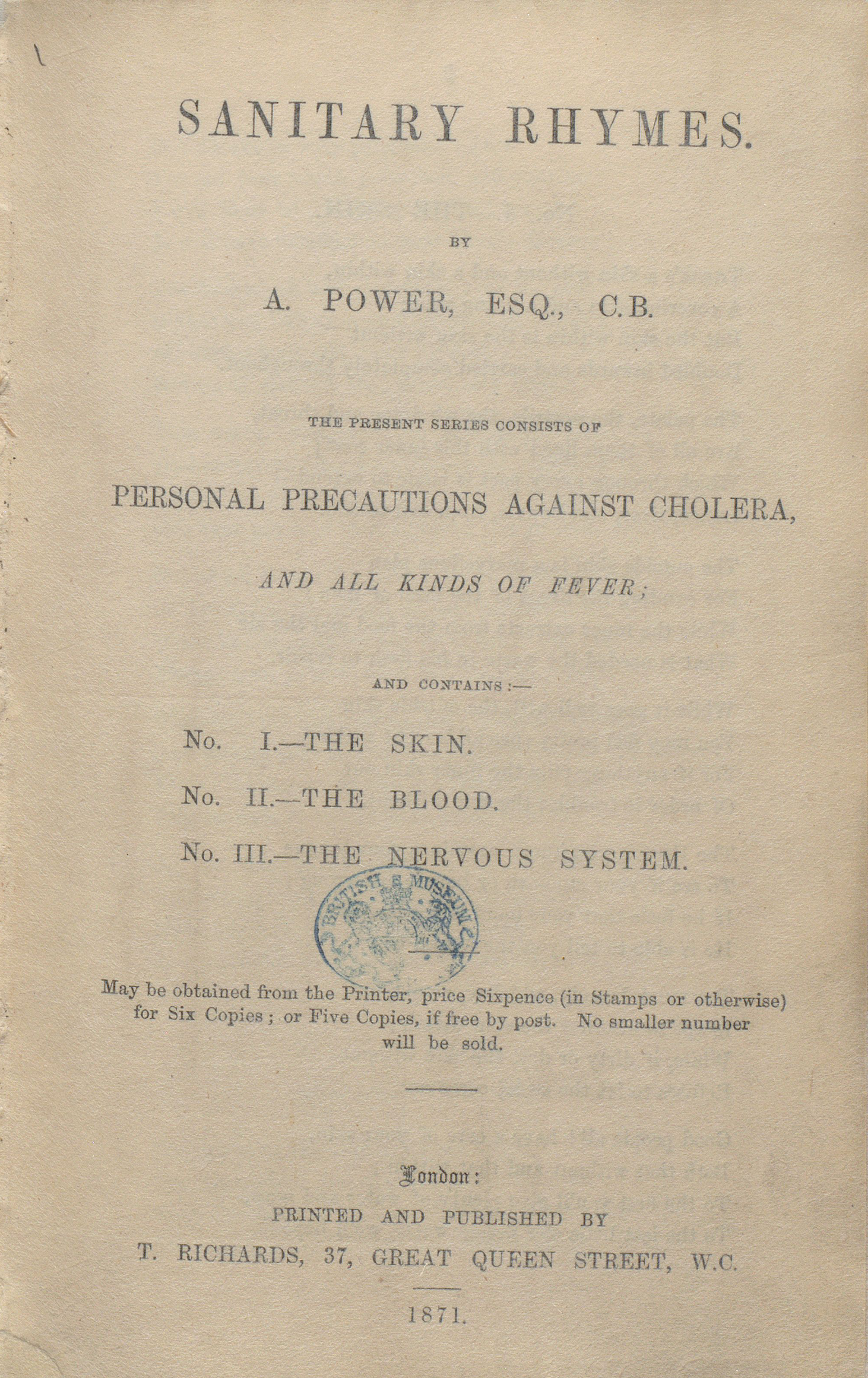
Our latest “Document of the Week” was chosen by our Senior Editor, Dr Tommy Dolan. It is Alfred Power’s Sanitary Rhymes, published in 1871.
Indicative of the sanitary movement that emerged in Britain throughout the mid to late nineteenth century, this short work advanced “Personal Precautions Against Cholera and Other Fevers”, espousing clean air and water, a good diet, hygienic waste disposal, and personal cleanliness to guard against infectious diseases.
Power’s rhymes focused on “The Skin”, “The Blood”, and “The Nervous System”. “Good people all! Have a care of your skin,” he wrote, for example, “Both that without and that within; To the first you’ll give plenty of water and soap, To the last little else besides water, we’ll hope!" (in the previous stanza he warned against imbibing too “much Brandy, Whiskey, or Gin”). Power likewise surveyed the significance and qualities of “Earth”, “Air”, “Water”, and “Fire”.
Sanitary Rhymes was dedicated to Edwin Chadwick, who was instrumental in bringing about Britain’s first Public Health Act in 1848, passed by the government in response to a cholera epidemic. Like Power, Chadwick advocated urban drainage and sewerage systems. That said, Chadwick’s idea of conveying sewerage into the Thames almost certainly contributed to major cholera outbreaks in London, as private companies were sourcing drinking water from the river. Furthermore, Chadwick, again like Power, was committed to the “miasma” theory of disease: the belief that foul air was the source of infection. They believed that by covering up or getting rid of rotting food and human waste, for example, as well as purifying the air, the spread of disease could be prevented.
Whilst there is an obvious link between filth and disease, miasmatists such as Chadwick, Power, and, indeed, Florence Nightingale, were missing a vital piece of information—the role played by bacteria. Even by 1890, Chadwick was recommending that fresh air be pumped down from tall structures to combat disease. In a similar vein, Power wrote:

Where to find this document
Power’s Sanitary Rhymes can be found in our primary source collection, Pandemics, Society, and Public Health, 1517–1925. This charts the course and consequences of pandemics over five centuries. Containing over 79,000 images, the collection concentrates on four diseases that have left a significant mark upon British history: plague, cholera, smallpox, and influenza. Visit the collection page to learn more.
